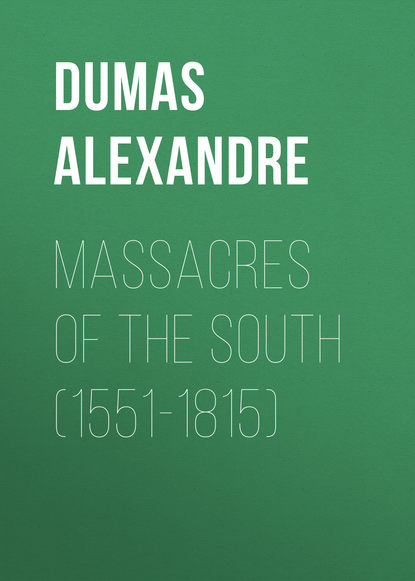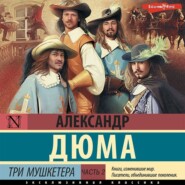По всем вопросам обращайтесь на: info@litportal.ru
(©) 2003-2024.
✖
Massacres of the South (1551-1815)
Настройки чтения
Размер шрифта
Высота строк
Поля
“I had been a week at Calvisson,” says Cavalier in his Memoirs, “when I received a letter from M. le Marechal de Villars ordering me to repair to Nimes, as he wished to see me, the answer to my demands having arrived. I obeyed at once, and was very much displeased to find that several of my demands, and in particular the one relating to the cities of refuge, had been refused; but M. le marechal assured me that the king’s word was better than twenty cities of refuge, and that after all the trouble we had given him we should regard it as showing great clemency on his part that he had granted us the greater part of what we had asked. This reasoning was not entirely convincing, but as there was no more time for deliberation, and as I was as anxious for peace as the king himself, I decided to accept gracefully what was offered.”
All the further advantage that Cavalier could obtain from M. de Villars was that the treaty should bear the date of the day on which it had been drawn up; in this manner the prisoners who were to be set at liberty in six weeks gained one week.
M de Villars wrote at the bottom of the treaty, which was signed the same day by him and M. de Baville on the part of the king, and by Cavalier and Daniel Billard on the part of the Protestants, the following ratification:
“In virtue of the plenary powers which we have received from the king, we have granted to the Reformers of Languedoc the articles above made known.
“MARECHAL DE VILLARS J. CAVALIER “LAMOIGNON DE BAVILLE DANIEL BILLARD
“Given at Nimes, the 17th of May 1704”
These two signatures, all unworthy as they were to stand beside their own, gave such great delight to MM. de Villars and de Baville, that they at once sent off fresh orders to Calvisson that the wants of the Camisards should be abundantly supplied until the articles of the treaty were executed – that is to say, until the prisoners and the galley slaves were set at liberty, which, according to article 2 of the treaty, would be within the next six weeks. As to Cavalier, the marechal gave him on the spot a commission as colonel, with a pension of 1200 livres attached, and the power of nominating the subordinate officers in his regiment, and at the same time he handed him a captain’s commission for his young brother.
Cavalier drew up the muster-roll of the regiment the same day, and gave it to the marechal. It was to consist of seven hundred and twelve men, forming fifteen companies, with sixteen captains, sixteen lieutenants, a sergeant-major, and a surgeon-major.
While all this was happening, Roland, taking advantage of the suspension of hostilities, was riding up and down the province as if he were viceroy of the Cevennes, and wherever he appeared he had a magnificent reception. Like Cavalier, he gave leave of absence and furnished escorts, and held himself haughtily, sure that he too would soon be negotiating treaties on terms of equality with marshals of France and governors of provinces. But Roland was much mistaken: M. de Villars had made great concessions to the popularity of Cavalier, but they were the last he intended to make. So, instead of being in his turn summoned to Nimes, or Uzes, to confer with M. de Villars, Roland merely received an intimation from Cavalier that he desired to speak with him on important business.
They met near Anduze, and Cavalier, faithful to the promise given to M. de Villars, neglected no argument that he could think of to induce Roland to follow his example; but Roland would listen to nothing. Then, when Cavalier saw that arguments and promises were of no avail, he raised his voice in anger; but Roland, laying his hand on his shoulder, told him that his head was turned, that he should remember that he, Roland, was his senior in command, and therefore bound by nothing that had been promised in his name by his junior, and that he had registered a vow in Heaven that nothing would persuade him to make peace unless complete liberty of conscience were granted to all. The young Cevenol, who was unaccustomed to such language, laid his hand on the hilt of his sword, Roland, stepping back, drew his, and the consultation would have ended in a duel if the prophets had not thrown themselves between them, and succeeded in getting Roland to consent to one of their number, a man much esteemed among the Huguenots, named Salomon, going back to Nimes with Cavalier to learn from M. de Villars’ own mouth what the exact terms were which Cavalier had accepted and now offered to Roland.
In a couple of hours Cavalier and Salomon set out together, and arrived at Nimes on the 27th May, escorted by twenty-five men; they halted at the tower of Magne, and the Protestants of the city came out to meet them, bringing refreshments; then, after prayers and a hasty meal, they advanced to the barracks and crossed the courtyards. The concourse of people and the enthusiasm was no whit less than on Cavalier’s first entry, more than three hundred persons kissing his hands and knees. Cavalier was dressed on this occasion in a doublet of grey cloth, and a beaver hat, laced with gold, and adorned with a white feather.
Cavalier and his travelling-companion went direct to the garden of the Recollets, and hardly had they got there than MM. de Villars and de Baville, accompanied by Lalande and Sandricourt, came out to meet them: the conference lasted three hours, but all that could be learned of the result was that Salomon had declared that his brethren would never lay down their arms till full liberty of conscience had been secured to them. In consequence of this declaration, it was decided that Cavalier and his regiment should be despatched to Spain without delay, in order to weaken the Calvinist forces to that extent; meantime Salomon was sent back to Roland with a positive promise that if he would surrender, as Cavalier had done, he would be granted the same conditions – that is to say, receive a commission as colonel, have the right to name the officers of his regiment, and receive a pension of 1200 livres. On quitting the garden of the Recollets, Cavalier found as great a crowd as ever waiting for him, and so closely did they press on him that two of his men were obliged to ride before him with drawn sabres to clear a way for him till the Montpellier road was reached. He lay that night at Langlade, in order to rejoin his troops early next morning.
But during his absence things had happened among these men, who had hitherto obeyed him blindly, which he little expected. He had left, as usual, Ravanel in command; but hardly had he ridden away when Ravanel began to take all kinds of precautions, ordering the men not to lay aside their arms. The negotiations with M. de Villars had made him most anxious; he looked upon all the promises given as snares, and he regarded the compromise favoured by his chief as a defection on Cavalier’s part. He therefore called all the officers and men together, told them of his fears, and ended by imbuing them with his suspicions. This was all the more easily done, as it was very well known that Cavalier had joined the Huguenots less from devotion to the cause than to avenge a private wrong, and on many occasions had given rise to the remark that he had more genius than religion.
So, on getting back to Calvisson, the young chief found his principal officers, Ravanel at their head, drawn up in the market-place, waiting for him. As soon as he drew near they told him that they were determined to know at once what were the conditions of the treaty he had signed with the marechal; they had made up their minds to have a plain answer without delay. Such a way of speaking to him was so strange and unexpected, that Cavalier shrugged his shoulders and replied that such matters were no business of theirs, being too high for their intelligence; that it was his business to decide what course to take and theirs to take it; it had always been so in the past, and with the help of God and his own, Cavalier’s, goodwill, it should still be so in future; and having so spoken, he told them to disperse. Ravanel upon this came forward, and in the name of all the others said they would not go away until they knew what orders Cavalier was about to give the troops, that they might consult among themselves whether they should obey them or not. This insubordination was too much for Cavalier’s patience.
“The orders are,” he said, “to put on the uniforms that are being made for you, and to follow me to Portugal.”
The effect of such words on men who were expecting nothing less than the re-enactment of the Edict of Nantes, can be easily imagined; the words “coward” and “traitor” could be distinguished above the murmurs, as Cavalier noticed with increasing astonishment. Raising himself in his stirrups, and glancing round with that look before which they had been used to tremble, he asked in a voice as calm as if all the demons of anger were not raging in his heart, “Who called Jean Cavalier traitor and coward?”
“I,” said Ravanel, crossing his arms on his breast.
Cavalier drew a pistol from his holsters, and striking those near him with the butt end, opened a way towards his lieutenant, who drew his sword; but at this moment the commissary-general, Vincel, and Captain Cappon threw themselves between the two and asked the cause of the quarrel.
“The cause,” said Ravanel, “is that the Cadets of the Cross, led by the ‘Hermit,’ have just knocked out the brains of two of our brethren, who were coming to join us, and are hindering others front attending our meetings to worship God: the conditions of the truce having been thus broken, is it likely they will keep those of the treaty? We refuse to accept the treaty.”
“Sir,” said Vincel, “if the ‘Hermit’ has done what you say, it is against the orders of the marachal, and the misdoer will be punished; besides, the large number of strangers at present in Calvisson ought to be sufficient proof that no attempt has been made to prevent the new converts from coming to the town, and it seems to me that you have been too easily led to believe everything that malicious people have told you.”
“I believe what I choose to believe,” said Ravanel impatiently; “but what I know and say is, that I shall never lay down arms till the king grants us full liberty of conscience, permission to rebuild our places of worship, and sends us back all prisoners and exiles.”
“But, judging by your tone,” said Cavalier, who had till now remained silent while toying with his pistol, “you seem to be in command here; have we changed, parts without my being aware?”
“It is possible,” said Ravanel.
Cavalier burst out laughing.
“It seems to astonish you,” said Ravanel, “but it is true. Make peace for yourself, lay down what conditions suit you, sell yourself for whatever you will bring; my only reply is, You are a coward and a traitor. But as to the troops, they will not lay down arms except on the conditions formulated by me.”
Cavalier tried to get at Ravanel, but seeing from his paleness and his smile that terrible things would happen if he reached his lieutenant, Vincel and Cappon, backed by some Camisards, threw themselves before his horse. Just then the whole band shouted with one voice, “No peace! no peace! no reconciliation till our temples are restored!” Cavalier then saw for the first time that things were more serious than he had believed, but Vincel, Cappon, Berlie, and about twenty Camisards surrounded the young chief and forced him to enter a house; it was the house of Vincel.
They had hardly got indoors when the ‘generale’ was sounded: resisting all entreaties, Cavalier sprang to the door, but was detained by Berlie, who said that the first thing he ought to do was to write M. de Villars an account of what had happened, who would then take measures to put things straight.
“You are right,” said Cavalier; “as I have so many enemies, the general might be told if I were killed that I had broken my word. Give me pen and ink.”
Writing materials were brought, and he wrote to M. de Villars.
“Here,” he said, giving the letter unsealed to Vincel, “set out for Nimes and give this to the marechal, and tell him, if I am killed in the attempt I am about to make, I died his humble servant.”
With these words, he darted out of the house and mounted his horse, being met at the door by twelve to fifteen men who had remained faithful to him. He asked them where Ravanel and his troops were, not seeing a single Camisard in the streets; one of the soldiers answered that they were probably still in town, but that they were moving towards Les Garrigues de Calvisson. Cavalier set off at a gallop to overtake them.
In crossing the market-place he met Catinat, walking between two prophets, one called Moses and the other Daniel Guy; Catinat was just back from a visit to the mountains, so that he had taken no part in the scene of insubordination that had so lately been enacted.
Cavalier felt a ray of hope; he was sure he could depend on Catinat as on himself. He hurried to greet him, holding out his hand; but Catinat drew back his.
“What does this mean?” cried Cavalier, the blood mounting to his forehead.
“It means,” answered Catinat, “that you are a traitor, and I cannot give my hand to a traitor.”
Cavalier gave a cry of rage, and advancing on Catinat, raised his cane to strike him; but Moses and Daniel Guy threw themselves between, so that the blow aimed at Catinat fell on Moses. At the same moment Catinat, seeing Cavalier’s gesture, drew a pistol from his belt. As it was at full cock, it went off in his hand, a bullet piercing Guy’s hat, without, however, wounding him.
At the noise of the report shouts were heard about a hundred yards away. It was the Camisards, who had been on the point of leaving the town, but hearing the shot had turned back, believing that some of their brethren were being murdered. On seeing them appear, Cavalier forgot Catinat, and rode straight towards them. As soon as they caught sight of him they halted, and Ravanel advanced before them ready for every danger.
“Brethren,” he cried, “the traitor has come once more to tempt us. Begone, Judas! You have no business here.”
“But I have,” exclaimed Cavalier. “I have to punish a scoundrel called Ravanel, if he has courage to follow me.”
“Come on, then,” cried Ravanel, darting down a small side-street, “and let us have done with it.” The Camisards made a motion as if to follow them, but Ravanel turning towards them ordered them to remain where they were.
They obeyed, and thus Cavalier could see that, insubordinate as they had been towards him, they were ready to obey another.
Just at the moment as he turned into the narrow street where the dispute was to be settled once for all, Moses and Guy came up, and seizing the bridle of his horse stopped him, while the Camisards who were on the side of Cavalier surrounded Ravanel and forced him to return to his soldiers. The troops struck up a psalm, and resumed their march, while Cavalier was held back by force.
At last, however, the young Cevenol succeeded in breaking away from those who surrounded him, and as the street by which the Camisards had retired was blocked, he dashed down another. The two prophets suspecting his intention, hurried after the troops by the most direct route, and got up with them, just as Cavalier, who had made the circuit of the town, came galloping across the plain to intercept their passage. The troops halted, and Ravanel gave orders to fire. The first rank raised their muskets and took aim, thus indicating that they were ready to obey. But it was not a danger of this kind that could frighten Cavalier; he continued to advance. Then Moses seeing his peril, threw himself between the Camisards and him, stretching out his arms and shouting, “Stop! stop! misguided men! Are you going to kill Brother Cavalier like a highwayman and thief? You must pardon him, my brethren! you must pardon him! If he has done wrong in the past, he will do better in future.”
Then those who had taken aim at Cavalier grounded their muskets, and Cavalier changing menace for entreaty, begged them not to break the promise that he had made in their name; whereupon the prophets struck up a psalm, and the rest of the soldiers joining in, his voice was completely drowned. Nevertheless, Cavalier did not lose heart, but accompanied them on their march to Saint-Esteve, about a league farther on, unable to relinquish all hope. On reaching Saint-Esteve the singing ceased for a moment, and he made another attempt to recall them to obedience. Seeing, however, that it was all in vain, he gave up hope, and calling out, “At least defend yourselves as well as you can, for the dragoons will soon be on you,” he set his horse’s head towards the town. Then turning to them for the last time, he said, “Brethren, let those who love me follow me!” He pronounced these words in tones so full of grief and affection that many were shaken in their resolution; but Ravanel and Moses seeing the effect he had produced, began to shout, “The sword of the Lord!” Immediately all the troops turned their back on Cavalier except about forty men who had joined him on his first appearance.
Cavalier went into a house near by, and wrote another letter to M. de Villars, in which he told him what had just taken place, the efforts he had made to win back his troops, and the conditions they demanded. He ended by assuring him that he would make still further efforts, and promised the marechal that he would keep him informed of everything that went on. He then withdrew to Cardet, not venturing to return to Calvisson.
Both Cavalier’s letters reached M. de Villars at the same time; in the first impulse of anger aroused by this unexpected check, he issued the following order:
“Since coming to this province and taking over the government by order of the king, our sole thought has been how to put an end to the disorders we found existing here by gentle measures, and to restore peace and to preserve the property of those who had taken no part in the disturbances. To that end we obtained His Majesty’s pardon for those rebels who had, by the persuasion of their chiefs, been induced to lay down their arms; the only condition exacted being that they should throw themselves on the king’s clemency and beg his permission to expiate their crime by adventuring their lives in his service. But, being informed that instead of keeping the engagements they had made by signing petitions, by writing letters, and by speaking words expressing their intentions, some among them have been trying to delude the minds of the people with false hopes of full liberty for the exercise of this so-called Reformed religion, which there has never been any intention of granting, but which we have always declared as clearly as we could, to be contrary to the will of the king and likely to bring about great evils for which it would be difficult to find a remedy, it becomes necessary to prevent those who give belief to these falsehoods from expecting to escape from well-deserved chastisement. We therefore declare hereby that all religious assemblies are expressly forbidden under the penalties proclaimed in the edicts and ordinances of His Majesty, and that these will be more strictly enforced in the future than in the past.
“Furthermore, we order all the troops under our command to break up such assemblies by force, as having been always illegal, and we desire to impress on the new converts of this province that they are to give their obedience where it is due, and we forbid them to give any credence to the false reports which the enemies of their repose are spreading abroad. If they let themselves be led astray, they will soon find themselves involved in troubles and misfortunes, such as the loss of their lands, the ruin of their families, and the desolation of their country; and we shall take care that the true authors of these misfortunes shall receive punishment proportioned to their crime.
“MARECHAL DE VILLARS
“Given at Nimes the 27th day of May 1704”

















